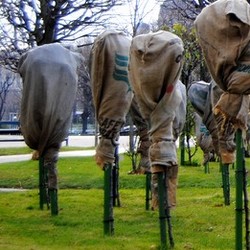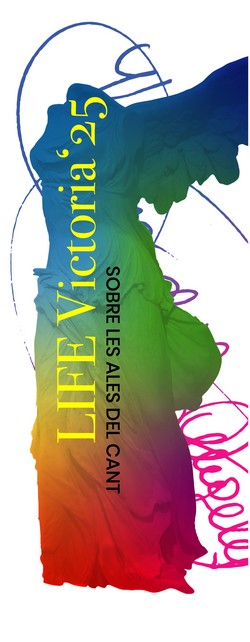- Details

A reader wrote me last Wednesday about the post published that day, and about the song Der Fichtenbaum. She told about trees and exiles, and she made me think of a small, moving Lied of Hanns Eisler, Ostersonntag, an unexpected cherry of Grieg. I wrote down in my notebook the song to write about it during the second quarter, but the next day Russia attacked Ukraine. Another war began in Europe, we watched again images of refugees fleeing, and Eisler's song no longer left my mind.
- Details

Let's go back to the series The Buch der Lieder and ten composers with one more poem from the Lyrische Intermezzo, no. 33, Ein Fichtenbaum steht einsam. [A spruce-tree stands alone]. Unlike most poems in this book, in which the poetic voice speaks in the first person, here there is an external observer. He tells us about this spruce that is alone in a distant place, in the North, surrounded by ice and snow. The narrator is external, but omniscient, and tells us that the spruce dreams of a palm [...]
- Details

"Cherchez la femme". This phrase, originally in a novel by Alexandre Dumas, was successfully adopted by the classical detective novel and the film noir in the 1940s: if you want to solve a mystery, if you intend to know why a man behaves as he behaves, find the woman behind him. In other words, the world is full of good men manipulated by evil women. Dumas wrote the sentence, but the idea is older, and the ballad world is also full of these stories; for instance, a few weeks ago we listen [...]
- Details

Music has a great evoking power, that's something that you, my dear reader, know well. Every so often, we hear unexpectedly a melody that we haven't heard for a long time; it transports us to a special time, reminds us of somebody or revive a feeling. Heinrich Heine also knew this evokin power, as Dichterliebe's poet did.
- Details

I think I told you I didn't want to start this blog. I had just given my first course of Lied, whose title stated my intentions: “Lied, a close genre,” and the descriptor just clarified: “Lied is often considered a difficult musical genre, far from our day to day. But we shouldn't forget that it tells us about life” Lied tells us about life, of course; its language is different from ours, but, if we feel close to Shakespeare's works, I don't see why shouldn't we feel close to a poem written 200 years ago. And an aim of that course, of all [...]














